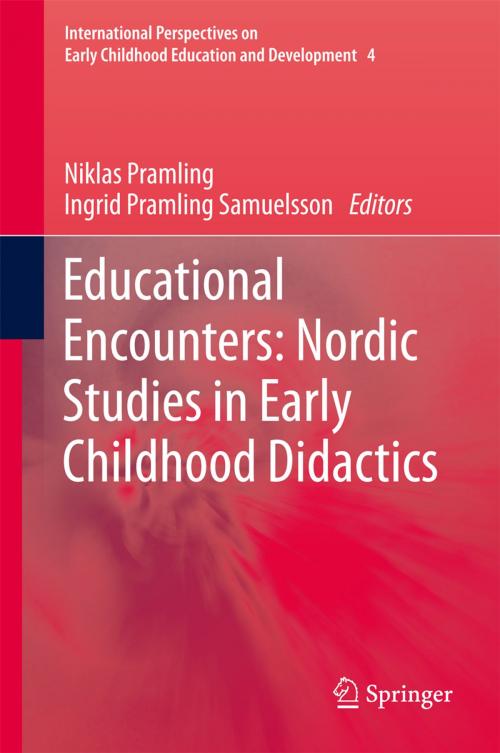Educational Encounters: Nordic Studies in Early Childhood Didactics
Nonfiction, Reference & Language, Education & Teaching, Preschool & Kindergarten, Teaching, Teaching Methods| Author: | ISBN: | 9789400716179 | |
| Publisher: | Springer Netherlands | Publication: | August 10, 2011 |
| Imprint: | Springer | Language: | English |
| Author: | |
| ISBN: | 9789400716179 |
| Publisher: | Springer Netherlands |
| Publication: | August 10, 2011 |
| Imprint: | Springer |
| Language: | English |
Qualitative analyses of young children’s learning in natural settings are rare, so this new book will make educators sit up and pay attention. It lays out a Nordic, or continental European teaching and learning paradigm whose didactic framework is distinct from the Anglo-American system. This analysis, which features contributions and case studies from researchers in a range of subjects, is built on principles such as the learner’s perspective, establishing sufficient intersubjectivity, ‘pointing out’, and informing experience linguistically. After clarifying some historical background, the book discusses the contemporary emphasis in early childhood education on pedagogy/learning. What should ‘didactics’ mean in educating young children?
The book examines the opportunities for learning that teachers provide for children in early childhood education, as well as how children respond to these opportunities. It presents empirical studies from a variety of naturalistic settings, including mathematics, making visual art, ecology, music, dance, literacy and story-telling, as well as learning about gender, morality and democracy. The authors seek to answer key questions about the processes involved in both teaching and learning. What challenges do teachers face as they try to expand children’s knowledge in various fields of learning? How do they respond to these challenges, and what can we learn about children’s corresponding uptake? What now requires further research? One key distinction in researching children’s learning is between studies that look at ‘process’ and those that analyze ‘product’. In the tradition of Piaget, Vygotsky and Werner, as well as Mercer and Valsiner’s more recent work, this book advocates the importance and relative rareness of the former type of study.
Qualitative analyses of young children’s learning in natural settings are rare, so this new book will make educators sit up and pay attention. It lays out a Nordic, or continental European teaching and learning paradigm whose didactic framework is distinct from the Anglo-American system. This analysis, which features contributions and case studies from researchers in a range of subjects, is built on principles such as the learner’s perspective, establishing sufficient intersubjectivity, ‘pointing out’, and informing experience linguistically. After clarifying some historical background, the book discusses the contemporary emphasis in early childhood education on pedagogy/learning. What should ‘didactics’ mean in educating young children?
The book examines the opportunities for learning that teachers provide for children in early childhood education, as well as how children respond to these opportunities. It presents empirical studies from a variety of naturalistic settings, including mathematics, making visual art, ecology, music, dance, literacy and story-telling, as well as learning about gender, morality and democracy. The authors seek to answer key questions about the processes involved in both teaching and learning. What challenges do teachers face as they try to expand children’s knowledge in various fields of learning? How do they respond to these challenges, and what can we learn about children’s corresponding uptake? What now requires further research? One key distinction in researching children’s learning is between studies that look at ‘process’ and those that analyze ‘product’. In the tradition of Piaget, Vygotsky and Werner, as well as Mercer and Valsiner’s more recent work, this book advocates the importance and relative rareness of the former type of study.















